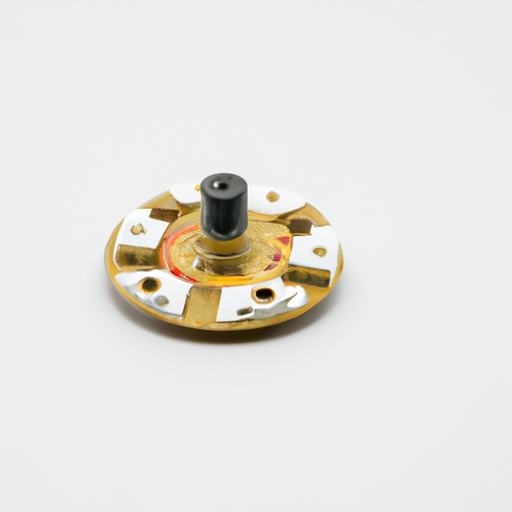Potentiometers are widely used in various electronic devices and equipment to control the voltage or current flow. They are essential components in many applications, including audio equipment, lighting controls, and industrial machinery. There are several popular models of potentiometers available in the market, each with its unique features and specifications. In this article, we will discuss some of the most popular models of potentiometers and their applications.

Linear potentiometers are the most common type of potentiometers used in electronic circuits. They have a linear taper, which means that the resistance changes linearly with the rotation of the shaft. Linear potentiometers are available in various resistance values, typically ranging from 1k ohm to 1M ohm. They are used in applications where a linear change in resistance is required, such as volume controls in audio equipment, dimmer switches in lighting controls, and speed controls in motor drives.
2. Rotary Potentiometers:
Rotary potentiometers, also known as rotary encoders, are used to control the position or angle of a rotating shaft. They have a circular design with a rotating shaft that can be turned to change the resistance value. Rotary potentiometers are available in various configurations, including single-turn and multi-turn models. Single-turn rotary potentiometers have a limited range of rotation, typically 270 degrees, while multi-turn rotary potentiometers can rotate multiple times to provide a wider range of resistance values. Rotary potentiometers are commonly used in applications such as volume controls in audio equipment, tuning controls in radios, and position sensors in industrial machinery.
3. Slide Potentiometers:
Slide potentiometers, also known as slider potentiometers, have a linear sliding mechanism that allows the user to adjust the resistance value by moving a slider along a track. Slide potentiometers are commonly used in applications where space is limited, such as portable electronic devices and compact audio equipment. They are available in various lengths, typically ranging from 10mm to 100mm, to accommodate different space requirements. Slide potentiometers are used in applications such as fader controls in audio mixers, tone controls in musical instruments, and position sensors in robotics.
4. Trimmer Potentiometers:
Trimmer potentiometers, also known as trim pots, are miniature potentiometers that are used for fine-tuning or calibration purposes. They are typically mounted on circuit boards and adjusted using a small screwdriver or tool. Trimmer potentiometers are available in various resistance values, typically ranging from 100 ohms to 1M ohm. They are used in applications such as voltage regulators, oscillators, and sensor circuits to adjust the output voltage or signal level. Trimmer potentiometers are also used in test and measurement equipment to calibrate the accuracy of the readings.
5. Digital Potentiometers:
Digital potentiometers, also known as digipots, are electronic devices that simulate the function of a traditional potentiometer using digital signals. They have a digital interface, such as I2C or SPI, that allows the user to control the resistance value using a microcontroller or computer. Digital potentiometers are available in various configurations, including single-channel and multi-channel models. They are used in applications such as digital audio processors, motor controllers, and programmable power supplies. Digital potentiometers offer several advantages over traditional potentiometers, including higher precision, faster response time, and remote control capabilities.
In conclusion, potentiometers are essential components in electronic circuits and devices for controlling voltage or current flow. There are several popular models of potentiometers available in the market, each with its unique features and specifications. Linear potentiometers are commonly used for applications requiring a linear change in resistance, while rotary potentiometers are used for controlling the position or angle of a rotating shaft. Slide potentiometers are ideal for applications where space is limited, while trimmer potentiometers are used for fine-tuning or calibration purposes. Digital potentiometers offer advanced features such as remote control and higher precision. Overall, potentiometers play a crucial role in a wide range of electronic applications and continue to evolve with advancements in technology.





